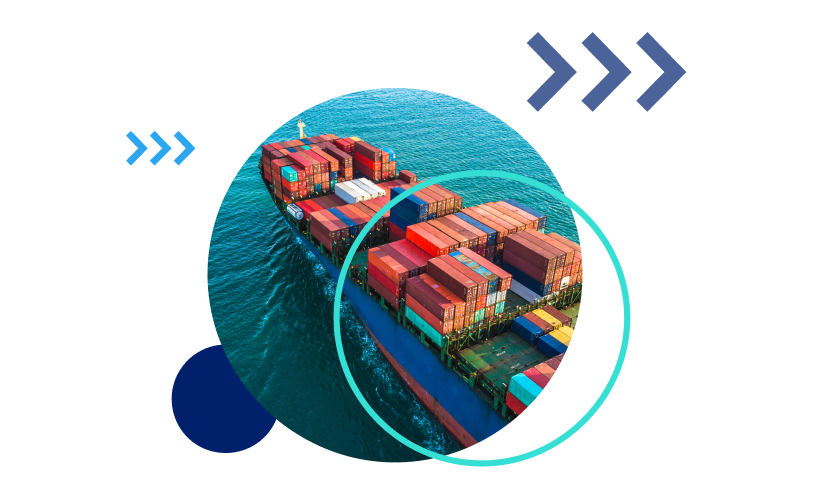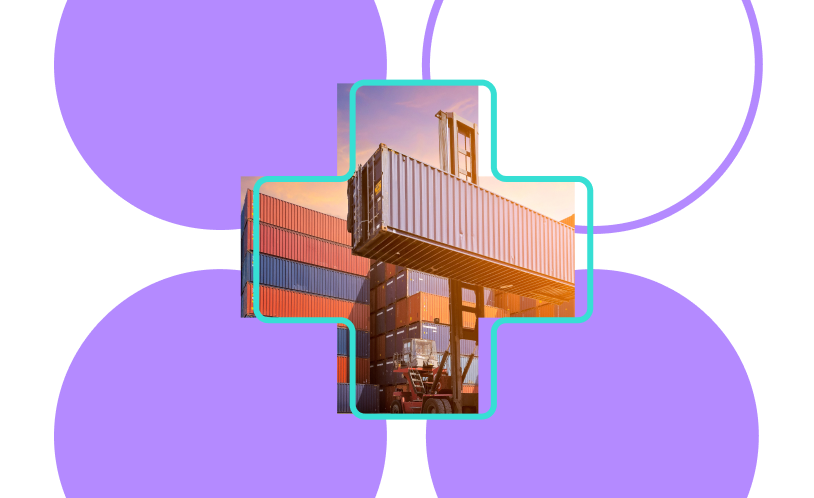If you’re an importer or exporter, you may have come across the term NVOCC. What is an NVOCC and how is it different from other logistics providers?
Read on to find out.
NVOCC Meaning
NVOCC is an acronym that stands for non-vessel owning common carrier. NVOCCs arrange shipments and logistics for shippers.
What is an NVOCC company?
NVOCCs are registered companies that help shippers arrange sea freight but do not own or operate vessels – unlike VOCCs, or carriers, who do own and operate the vessels.
NVOCCs rent space with ocean carriers on behalf of importers and exporters, which is why they are sometimes called virtual shipowners. They typically agree to provide carriers with a minimum quantity of freight over a specified period of time. Each NVOCC can set its own charges for importers and exporters for the leased vessel space.
In essence, NVOCCs are intermediaries between carriers and shippers, helping to ease the freight transportation process.
What is an NVOCC agent?
When you work with an NVOCC, the person who takes charge of your shipment on behalf of the company is called an NVOCC agent.
They provide relevant information including freight quotes, documentation, and details on vessel capacity. They also book space on the vessel and help with any related compliance.
What is an NVOCC license?
An NVOCC license is a document that establishes an NVOCC as a registered OTI (Ocean Transportation Intermediary).
Any company operating as an NVOCC needs an OTI-NVOCC license from the Federal Maritime Commission (FMC) in the United States. Non-US NVOCCs do not require a license but need to register themselves with the FMC to transport goods across US borders.
Licensed NVOCCs can enter into contracts with shipping lines or other shippers.
If you’re working with an NVOCC, make sure they are FMC-licensed or registered.
Looking to ship freight?
NVOCC vs Freight Forwarder: What is the difference?
Freight forwarders and NVOCCs are similar – in fact, the terms are often used interchangeably.
However, these types of businesses differ in the ways they operate. Here are some examples:
| NVOCC | Freight Forwarder | |
| NVOCCs specialize in ocean freight | Freight forwarders work with all types of transportation modes | |
| NVOCCs are considered equivalent to carriers in relation to shippers | Freight forwarders are considered agents in relation to shippers | |
| NVOCCs issue their own bills of lading | Freight forwarders do not issue bills of lading | |
| NVOCCs assume liability for ocean cargo | Freight forwarders do not assume liability for goods |
In some cases, NVOCCs can operate as freight forwarders by providing added services, but freight forwarders cannot operate as NVOCCs.
Additionally, in most cases, NVOCCs deal with freight forwarders instead of directly dealing with importers and exporters.

NVOCC vs VOCC: What is the difference?
NVOCC stands for non-vessel owning common carrier, while VOCC stands for vessel-owning common carrier. In other words, a VOCC is a carrier that owns and operates the vessels that ship freight while an NVOCC arranges shipping but does not own the vessel.
Here are some other differences:
| NVOCC | VOCC | |
| An NVOCC sells vessel space to shippers or freight forwarders | A VOCC sells vessel space to intermediaries such as NVOCCs, forwarders, or occasionally importers or exporters | |
| An NVOCC may provide additional services such as customs clearance, freight forwarding, inland transportation, and documentation | VOCCs generally do not provide additional services and handle only the operations of the transporting vessel | |
| An NVOCC issues a house bill of lading (HBL) to the shippers or agents of shippers. | A VOCC issues a master bill of lading (MBL) to intermediaries | |
| NVOCCs have less control over vessel capacity, network routing, and equipment | VOCCs have complete control over vessel space, routes, detention/demurrage time, and shipping equipment. |
Whether you choose a freight forwarder or NVOCC, make sure to use a provider that provides the best services for your needs.



